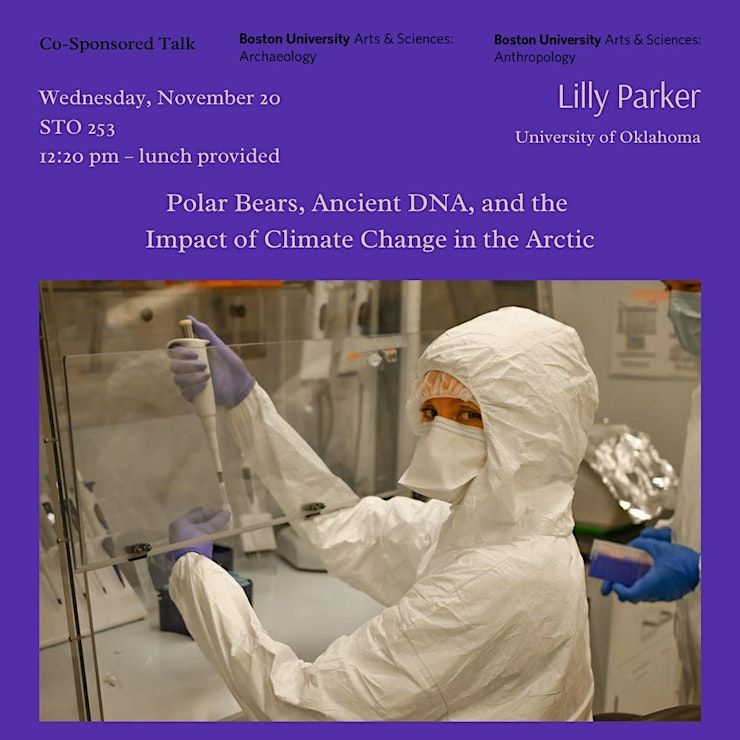Polar Bears, Ancient DNA, and the Impact of Climate Change in the Arctic
Schedule
Wed Nov 20 2024 at 12:20 pm to 01:10 pm
UTC-05:00Location
Gabel Museum of Archaeology | Boston, MA
About this Event
During the Fall of 2024, Boston University's Archaeology Program and the Anthropology Department are co-sponsoring a lectured titled “Polar Bears, Ancient DNA, and the Impact of Climate Change in the Arctic.” We are thrilled to have Dr. Lilly Parker (University of Oklahoma, Laboratories of Molecular Anthropology and Microbiome Research, Department of Anthropology) joining us to share their work. The talk is Wednesday, November 20th in the Gabel Museum of Archaeology, STO 253, 675 Commonwealth Avenue, 12:20-1:10. Lunch will be provided.

The archaeological record suggests that Unangax̂ ancestors in Alaska’s temperate Aleutian Islands were harvesting bears during the Neoglacial climatic phase (ca. 4700-2500 BP), a time when this region was significantly colder and the region likely supported sea ice and ice-dependent animals. Previous analyses have identified polar bear (Ursus maritimus) remains in archaeological sites in Unalaska Bay, which have been used to infer bear range expansion and significant climate changes during this period. However, morphological similarities between polar and brown (Ursus arctos) bears make it difficult to distinguish between the two species, and the presence of bear material in Unalaska Bay could be the result of long-distance travel or trade rather than local harvest. This research uses zooarchaeological and biomolecular (genomic and isotopic) methods to determine bear species, population affiliation, and the number of individual bears harvested. We discuss insights gained from these analyses which shed light on the impacts of Neoglacial climate change on bear population dynamics and the human-bear relationship.
Where is it happening?
Gabel Museum of Archaeology, 675 Commonwealth Avenue, Boston, United StatesEvent Location & Nearby Stays:
USD 0.00













